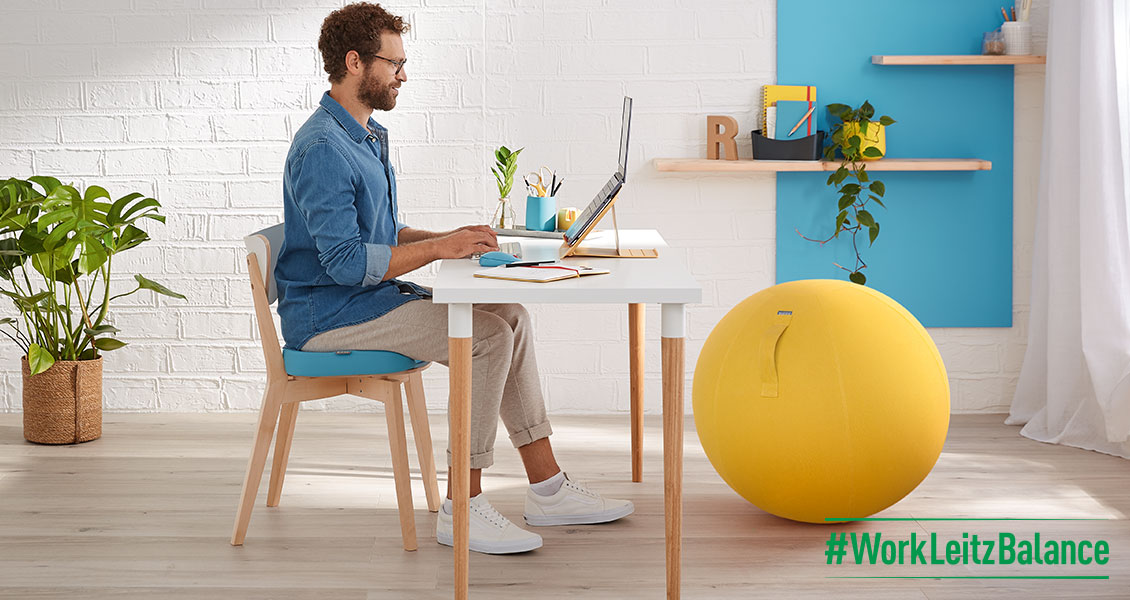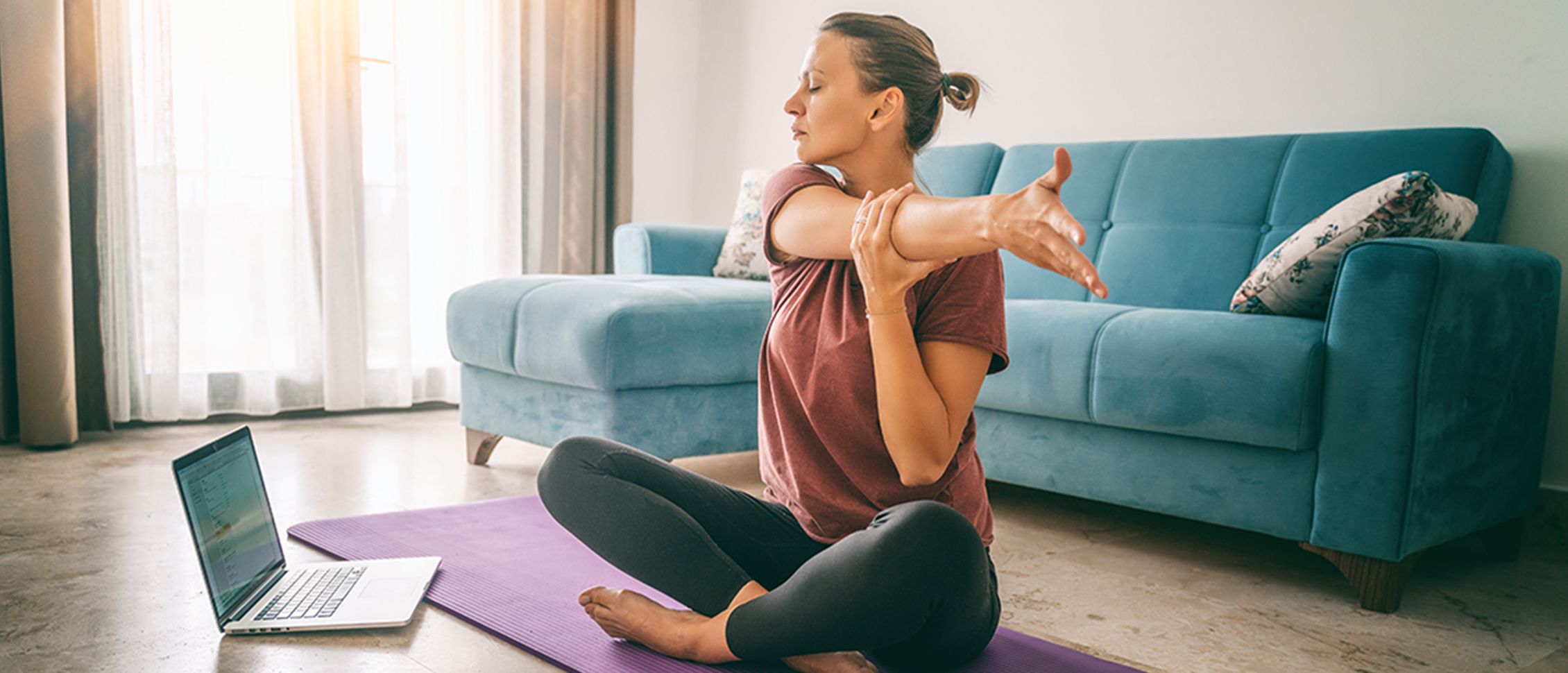How to Combat Working from Home Fatigue
08.05.2022

Remote working and hybrid working have become more and more popular in recent years. Initially spurred on by lockdowns, businesses and employees alike have now realised the benefits that a more flexible approach to working can bring. However, remote working can also have downsides, including workers suffering from work from home fatigue.
Work from home fatigue is when workers become unmotivated, exhausted, and generally dissatisfied with their work life. It can cause people to become unproductive and unable to focus, which can lead to stress and anxiety. Work from home fatigue can be experienced temporarily, or it can be a symptom of burnout and a more severe issue. However, for those that are experiencing working from home fatigue, there are a few steps that can be taken to try to improve the situation and bring back motivation.
Create a Positive Work Environment
It’s important that your workstation and the environment you’re working in are comfortable. This will help to make working a more positive experience and also help you to stay focused on your work. Even if you can’t have a dedicated home office, you should aim to set up a section of a room where you can comfortably work at a table with an appropriate chair.

You should try to set up your workstation with ergonomic office products so you can improve posture and prevent any aches and pains that can come with sitting at a desk. An ergonomic workspace will also help you to stay focused and motivated.
You should mindfully decorate your workspace, making sure the equipment you use will create a pleasing environment. The Leitz Cosy range combines style with practical organisation solutions. Our items are available in a range of Cosy colours which will match any interior, whether you’re working in your living room or in a home office.
When decorating your workspace, you should also include personal items that bring you joy, like an art print, house plants, or soft furnishings. Whilst you should take care to not clutter the space too much and cause a distraction, having a few pieces that bring you comfort will help to make sure working is a positive experience for you.
Catch Up with Other Remote Working Colleagues
If you’re used to working in an office, you’ll likely be used to having conversations with your colleagues throughout the day. When you’re working from home, your social interactions will probably be more limited. This can lead to workers feeling lonely and isolated, which can increase the feeling of working from home fatigue.
It’s important for people to maintain social connections with others, to help people feel happier and less stressed. You should make sure to check in with your other colleagues, especially with others who are also working from home. You could create a channel on your messaging app for social chat and to share photos of pets, food, or a picturesque scene from your daily walk. You could call a colleague for a virtual coffee break or take a colleague for a virtual walk on the phone or a video call. You could schedule in a weekly or monthly meeting for the whole team to get together virtually and have a catch up or even take part in a quiz.
Socialise In-Person
As well as socialising online, you should also try to socialise in-person. If your colleagues are local, you should organise social meet ups for coffee or drinks, or for lunch or dinner. You could also organise activities for team building, like escape rooms, paintball, or hiking. Being able to meet up with your colleagues in person will help you to build connections with them and improve your working relationships. This can help to make you feel less isolated when you’re home working and reduce your work from home fatigue.
It may be that your team are spread around in different locations, and meeting in-person isn’t possible. In that case, you should try to meet up regularly with friends or family, maybe meeting someone for lunch at a local café. Speaking to someone face-to-face is a very different experience to speaking from someone virtually. Being able to interact with someone outside of work can help you to relax and feel less stressed which can help to make the working day a much more enjoyable experience.
Work in a Different Location
Getting a change of scene can be a huge help when you’re starting to experience working from home fatigue. Working in a new location can help to keep things fresh and combat the repetitiveness you might feel when you work from home every day. You could try working for a few hours in a café, in your local library, or in a co-working space. You could also ask your remote working colleagues or friends to join you, so you can have some company whilst you work.
If you’re not able to work in a public space, you could try sitting in another room in your home. Whilst it might not be as exciting as going to a new place, it will still be a different environment for you to work in, which can help to break up your working day and prevent monotony.
Take on New Tasks
When you’re working in the office, your day will naturally be broken up with interruptions from colleagues. With home based work, you might find that you can be more productive with fewer distractions, but you could also find that you start experiencing burnout symptoms from repetitive, constant tasks.
If your workload is feeling mundane, you could ask to take on new responsibilities, help a different team, or take the lead on a new project. Whatever it is, you should find something new that can add some excitement to your day, so you can avoid work from home fatigue. At the same time, you should be careful not to take on too much extra work. Working too much will mean you’ll be at higher risk of stress and burnout. Instead, only take on what is manageable with your current workload or speak to your manager about potentially swapping responsibilities with a co-worker.
Take Plenty of Breaks
Without the distraction of office life, you could find that you end up constantly working with no breaks. This will likely lead to exhaustion and burnout, as well as making you feel unmotivated to work. Instead of forcing yourself to work constantly, you should make sure to take plenty of breaks throughout the day. You should step away from your desk at least every hour, to move your body and to take a step back from your tasks.

When work becomes a chore, taking a break can help you to reset and help you to return to work refreshed and motivated. Regular breaks can also help you to stay focused for the time you’ve allocated to working, so you can work much more productively.
Find Exercise You Enjoy
It might seem counterintuitive but working from home fatigue can be prevented with exercise. Finding regular exercise that you enjoy will release endorphins which will improve your mood and make you feel more energised. When you’re working in an office, you’ll naturally move around more, walking to speak to colleagues or to go to meeting rooms. When you’re remote working, you’ll probably have fewer opportunities to move around, which could make you feel stagnant. Instead, you’ll need to create time to be active.

You can take part in desk exercises to stretch and move your body, go for a walk at lunch time, or go for a jog during the morning or evening when you might have otherwise had a commute. You could involve your colleagues by setting a steps goal for the day or week, or by organising a group virtual yoga session.
Maintain a Work Life Balance
When you work from home, the boundaries between work life and personal life can become blurred. You could end up working long hours, checking emails before bed, or taking calls when you should be having time off. This can all lead to you becoming overworked and exhausted.
If possible, set up your workspace in a designated home office which you can leave at the end of the working day. Or if that’s not available, make sure your laptop and other work equipment is shut down and put away at the end of every working day, so you’re not tempted to keep working into the night. You should make sure that you don’t have work notifications on your phone outside of hours and ensure your team know not to contact you when you’re on annual leave. This will help you to maintain a healthy work life balance. When you can improve your work life balance, you’ll be able to focus on your personal life when needed and also be motivated and productive when it’s time to work.
Leitz has an extensive range of home office essentials so you can create your perfect home working environment.
Read more about staying motivated whilst working from home:
10 Tips to Beat the Winter Blues at Work and Stay Motivated
How to Deal with Shorter and Darker Days When Remote Working
How to Combat Winter Burnout When Working from Home